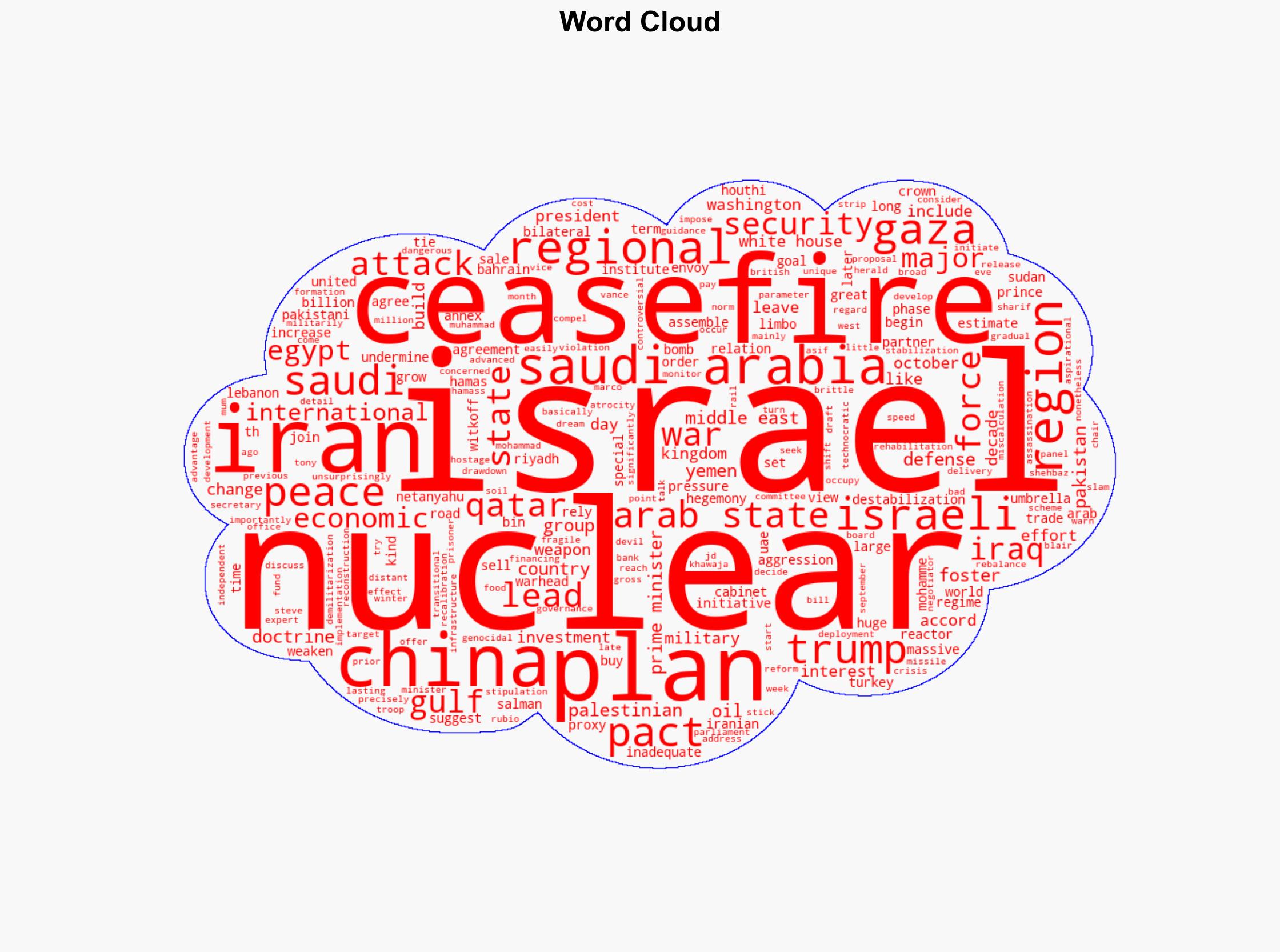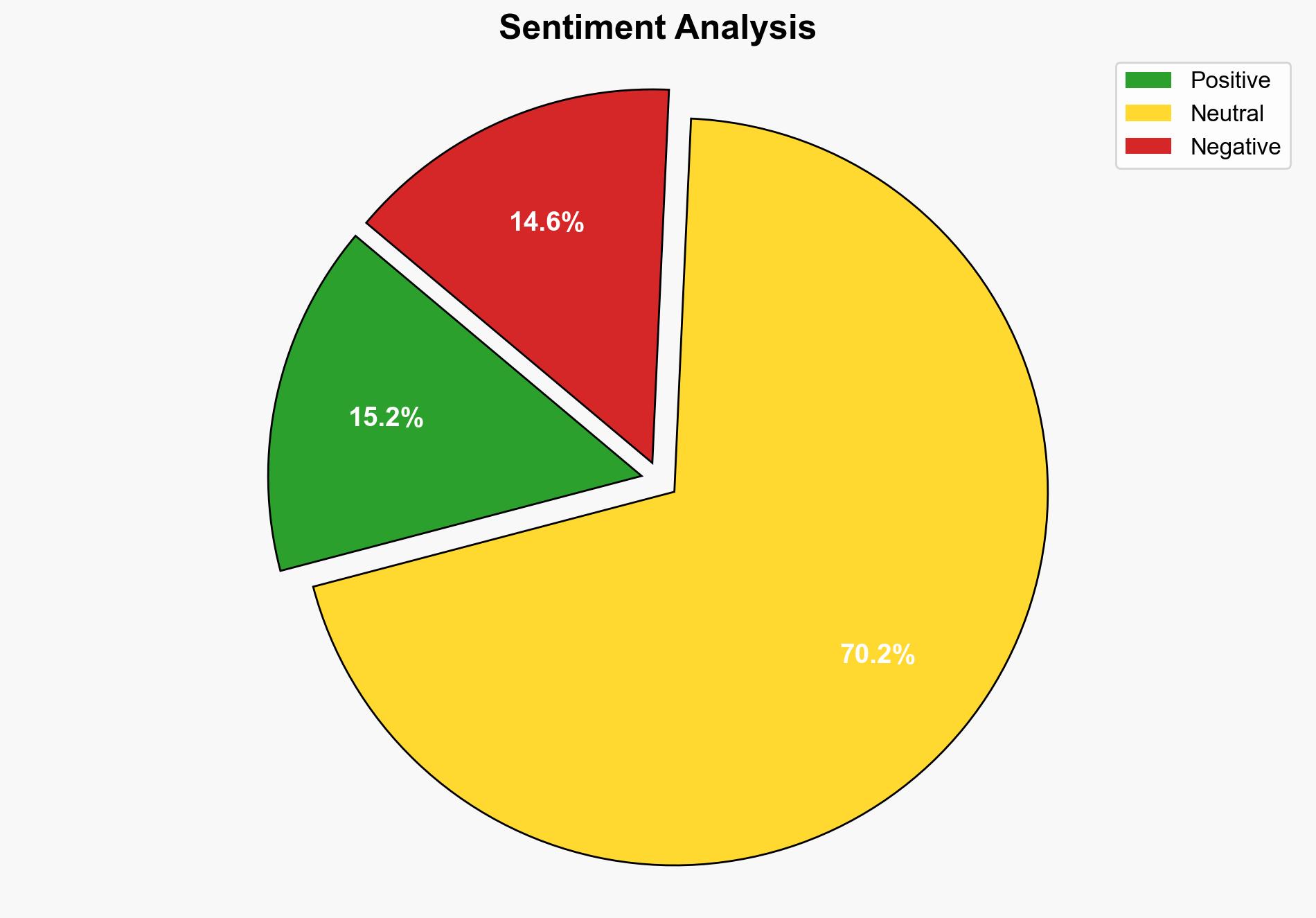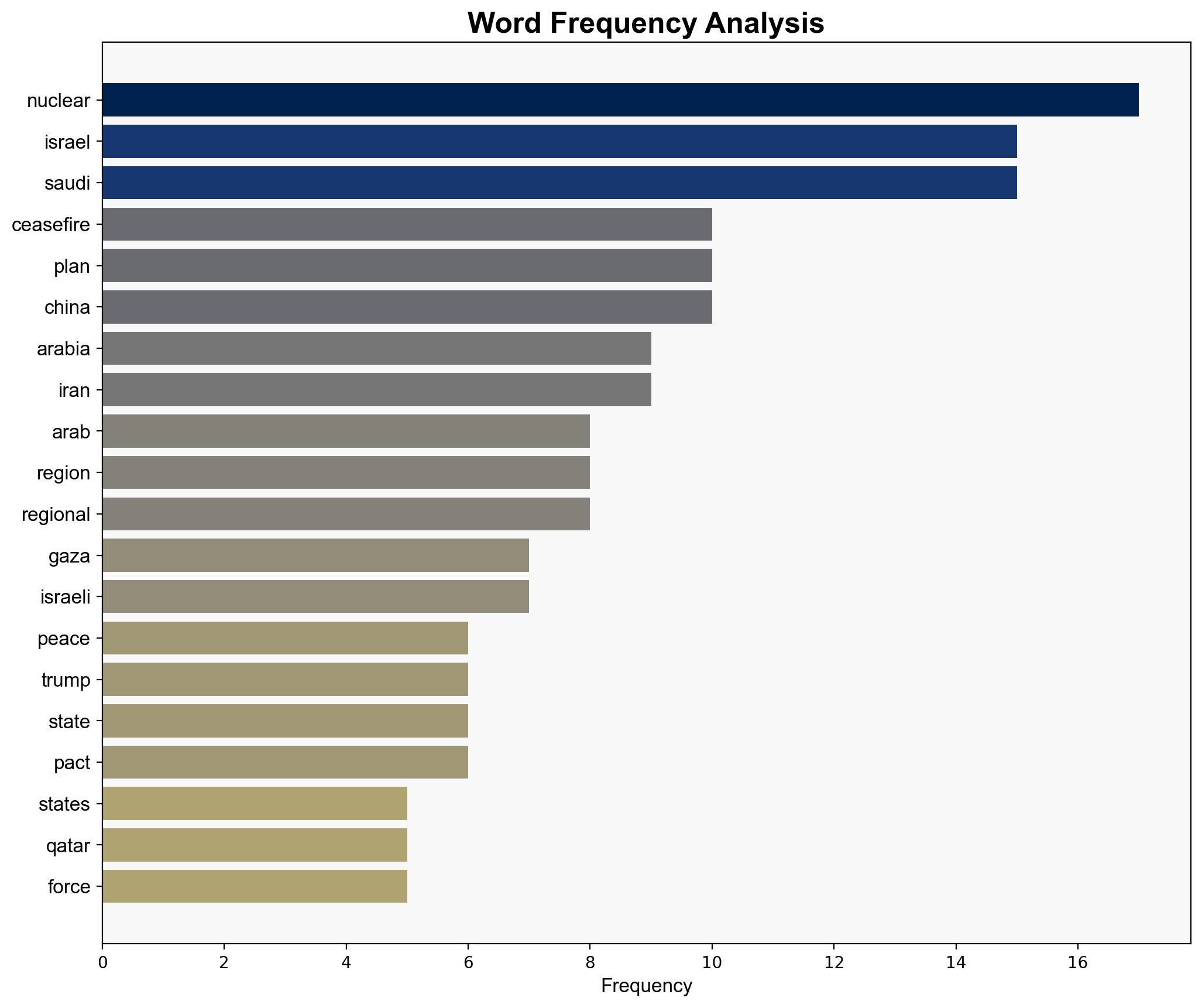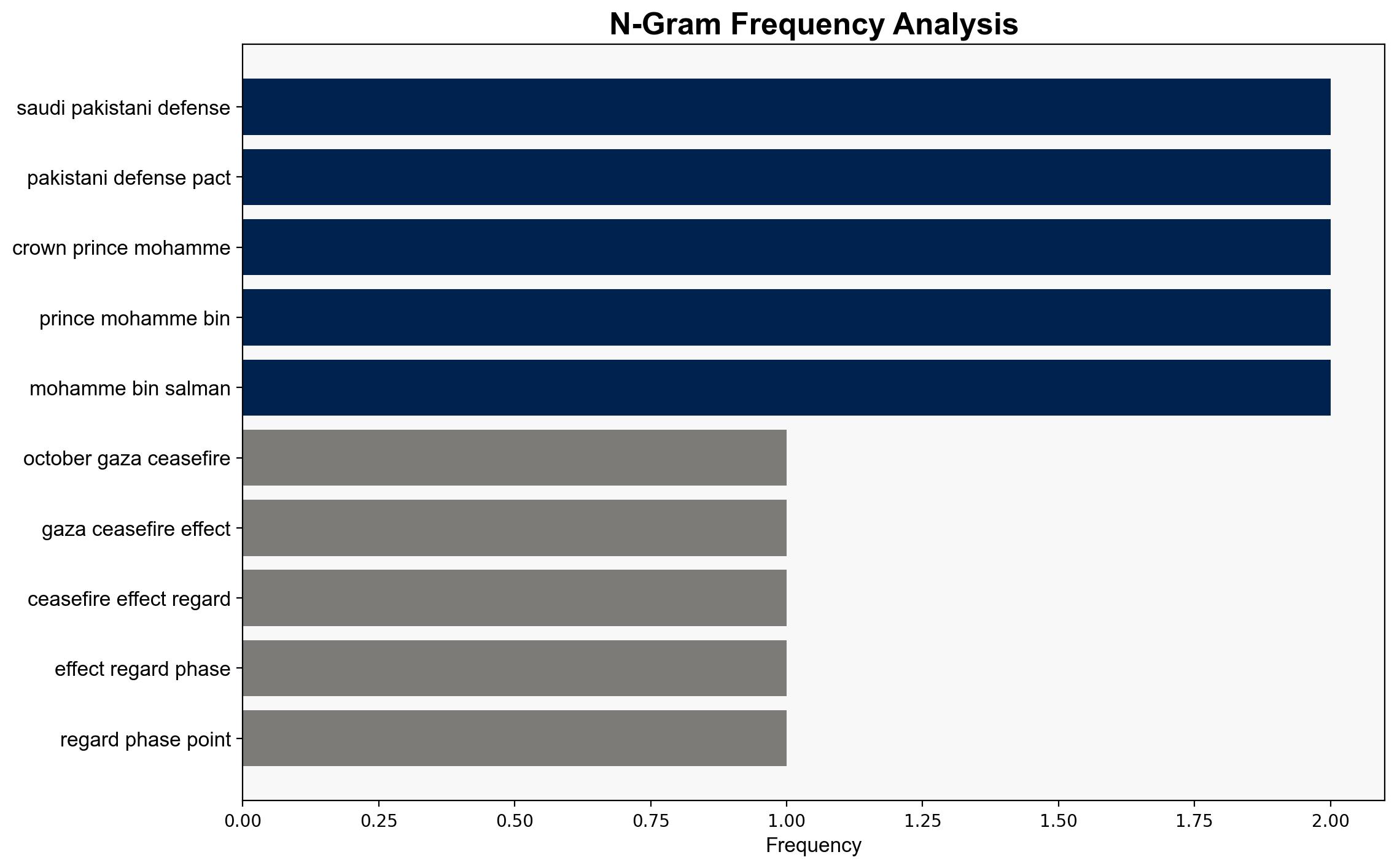The Post-Gaza Rebalancing in the Middle East – Antiwar.com
Published on: 2025-10-29
Intelligence Report: The Post-Gaza Rebalancing in the Middle East – Antiwar.com
1. BLUF (Bottom Line Up Front)
The strategic judgment indicates a moderate confidence level that the current ceasefire and peace plan efforts are fragile and susceptible to collapse due to underlying geopolitical tensions and historical precedents. The hypothesis that the ceasefire will lead to a significant rebalancing of power in the Middle East is less supported compared to the hypothesis that it will face significant challenges and potential failure. Recommended action includes diplomatic engagement to strengthen the ceasefire and address underlying issues.
2. Competing Hypotheses
Hypothesis 1: The ceasefire and peace plan will lead to a significant rebalancing of power in the Middle East, resulting in long-term stability and economic development.
Hypothesis 2: The ceasefire is fragile and likely to collapse due to historical tensions, geopolitical interests, and inadequate implementation mechanisms.
Using the Analysis of Competing Hypotheses (ACH) 2.0, Hypothesis 2 is better supported. The historical pattern of ceasefire failures, the absence of detailed implementation plans, and recent aggressive actions by key players suggest a high likelihood of collapse.
3. Key Assumptions and Red Flags
Assumptions:
– Hypothesis 1 assumes that all parties are committed to the peace process and that economic incentives will outweigh historical grievances.
– Hypothesis 2 assumes that geopolitical interests and historical animosities will override short-term peace efforts.
Red Flags:
– The lack of a clear international stabilization force and funding for reconstruction.
– Recent aggressive military actions by Israel and ambiguous statements regarding nuclear capabilities.
4. Implications and Strategic Risks
The fragile ceasefire poses risks of renewed conflict, potentially drawing in regional and global powers. The economic and humanitarian situation in Gaza remains precarious, risking further destabilization. The potential for nuclear escalation, as indicated by recent developments, adds a significant strategic risk.
5. Recommendations and Outlook
- Engage diplomatically with key regional players to reinforce the ceasefire and address underlying tensions.
- Facilitate international support for economic development and reconstruction in Gaza.
- Scenario Projections:
- Best Case: Successful implementation of the peace plan leading to regional stability.
- Worst Case: Collapse of the ceasefire and escalation into broader conflict.
- Most Likely: Continued fragile ceasefire with sporadic violations and limited progress.
6. Key Individuals and Entities
– Steve Witkoff
– JD Vance
– Marco Rubio
– Benjamin Netanyahu
– Mohammed bin Salman
– Muhammad Shehbaz Sharif
– Khawaja Mohammad Asif
– Tony Blair
7. Thematic Tags
national security threats, cybersecurity, counter-terrorism, regional focus




